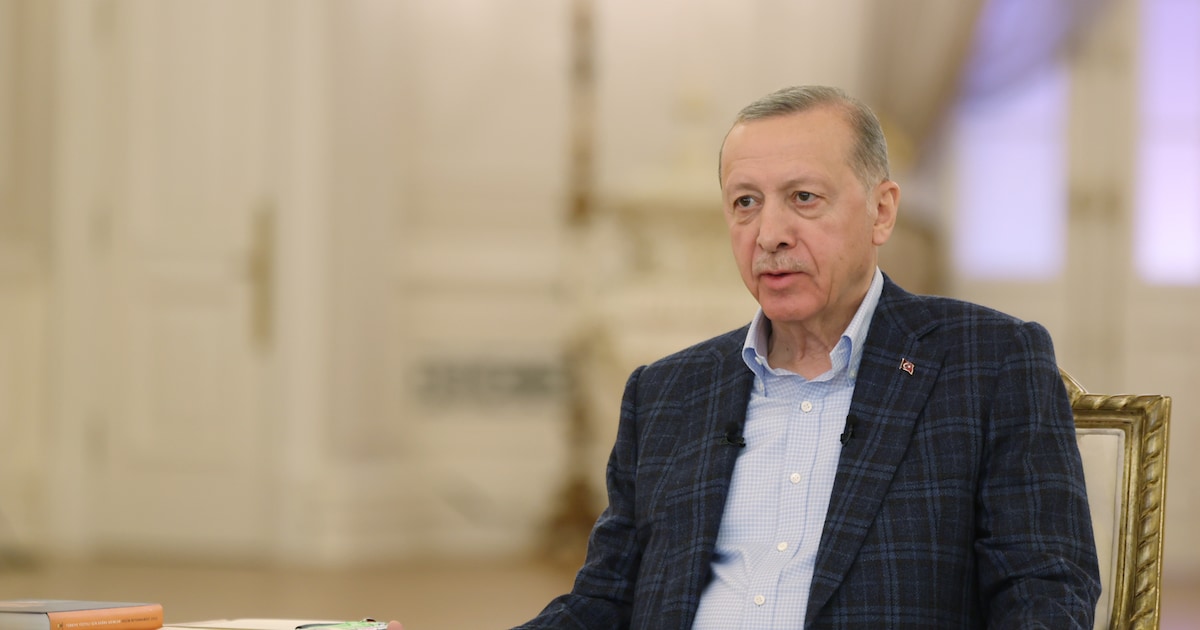
“Turkey and Qatar are the only countries in the world that welcome Palestinians as human beings,” Palestinian photojournalist Motaz Azaiza said earlier this year during an interview with Turkey’s TRT World. Azaiza was in Istanbul to receive the TRT World Citizenship Award, one of his first public appearances after fleeing the war in Gaza. A clip of the interview on Instagram was viewed millions of times.
TRT World is the flagship of an international media empire built under the rule of Turkish President Recep Tayyip Erdogan. During the Gaza war, these platforms focus on “Western hypocrisy” and TRT World videos are widely shared in the Middle East. At the same time, these media outlets also express exactly the voice of the AKP government: Turkey is a strong global player that opposes Western imperialism and Islamophobia.
Bilge Yesil, a professor of media culture at the City University of New York, conducted research on these Turkish media platforms, which primarily attract news consumers outside Turkey with their English-language content, in her book Responding to the West It shows how the AKP mobilizes such channels on the international stage to spread its message.
Cynical and hypocritical
Although TRT World and similar outlets such as Daily Sabah and Anadolu Agency do not publish visitor figures, Yesil does believe that since October 7, these channels’ coverage has fallen on more fertile ground. “We should also criticize Western media for mistakes and double standards, such as in reporting on Ukrainian refugees and war victims and Palestinian victims,” he says by phone.
However, he also calls the way TRT World reported on university protests in the US, for example, “cynical”. “When you see these kinds of reports, it is important to bear in mind that similar and worse things have been happening in Turkish universities for a long time,” says Yesil, referring to the way rectors in Turkey have been replaced by the AKP. Loyalists and student protesters were arrested. Erdogan’s handling of criticism in his own country is not often reported on by these channels.
Therefore, with examples like this, it is easy to dismiss these outlets as propaganda. The line between the leaders of such media platforms and the AKP is often very thin. However, Yesil prefers to call it “strategic embezzlement,” because these Turkish outlets normally do not spread lies. “But the way they report often falls into binary oppositions, while the reality is complicated.”
In the book, he mentions several of these contradictions, which coincide with the way Erdogan and the AKP like to portray the world. “The immoral West versus the moral East” is a common image, where Islamophobia is inherent to the West and the Islamic world is superior.
Another example is the idea that the rest of the world is targeting Turkey. This was reflected in the way the unrest surrounding the ‘grey wolf gesture’ made by a Turkish footballer during the European Championship was reported. “They hate us because we are Turkish,” was the trend in many media outlets, Yesil saw. “This has been the general strategy of the Erdogan regime for more than a decade. Just like in the domestic media, the idea that the whole world is against us is always emphasized.”
‘Rising power’
Yesil argues that these outlets should be taken seriously. They have a large audience, also abroad. “The target group is mainly English-speaking second- or third-generation Muslims in the West and English-speaking people in the Global South, such as Africa, Southeast Asia and Latin America.”
According to Yesil, it is also relevant in this period when Western dominance is in decline, pointing to the growing power of Russia and China and the emergence of associations such as the BRICS. “Turkey is also trying to position itself as one of these great rising powers, as a country that can disrupt this Western hegemony and take on the leadership of the Global South.”
Whether and to what extent this will be successful remains to be seen, but as anecdotal evidence, Yesil has seen more and more clips of TRT World circulating on X since October 7 (the Hamas attack on Israel, ed.). or Al Jazeera, but not TRT World. I think this was an excellent time for TRT World to be introduced to a global audience.”
Read also:
An Islamist alternative to Erdogan’s AKP is emerging in Türkiye
The New Prosperity Party made significant gains in local elections in Turkey. The right-wing Islamist party appeared to be an alternative to Erdogan’s party for many voters.





